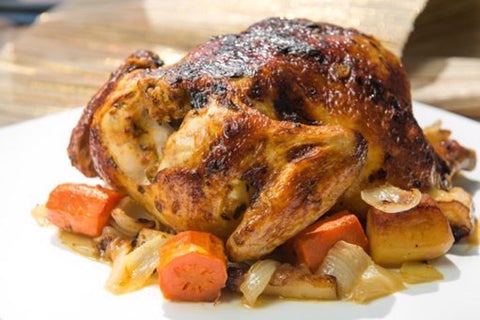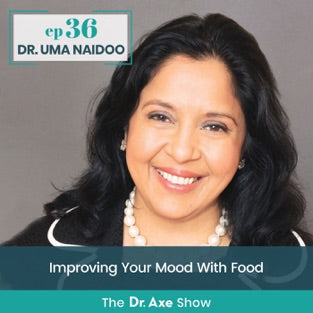Steamed broccoli. Leafy greens. No carbs. No snacks. If this does not look like your menu over the past four months, you’re not alone.
A new survey conducted by OnePoll on behalf of Naked Nutrition found that, during the COVID-19 crisis, close to half of all Americans are not eating their vegetables. And Americans have increased their consumption of carbohydrates too. Also, the International Food Information Council’s 2020 Food & Health surveyfound that 32 percent of Americans are snacking more.
You may be one of those people who gives yourself the license to indulge at a time of stress, but this will also likely compromise your ability to be healthy and disease free. It’s no secret that what you eat can change how you feel and deal with stressors, but here’s the rub: stress also makes you opt for choices that are not in your best interest.
What’s more, stress imprisons you in “habit hell” and, unfortunately, it’s the not-so-healthy habits that meet you when the habit door is slammed shut. For instance, studies show that stress will make you eat more junk food and snacks, and more highly-palatable foods (i.e., tasty, calorically-dense foods containing high amounts of sugars, other carbohydrates, and/or fats).
Also, stress will make you want to eat less “meal-type foods (fruit and vegetables, meat and fish) and 35–60% of people report eating more total calories. This is, of course, called “emotional eating,” and your passionate response to food that you truly love will likely harm you despite the pleasure it initially brings.
The biggest mistake that I see people making is trying a radically new diet that is doomed to fail. A 2019 review in the Journal of the American Medical Association found that most diet trials do not meet basic quality control measures.
So, my first recommendation is: Know the science and don’t follow the latest fad or first thing you read. You’re better off starting with making choices in consultation with your doctor than the first diet you see. A 2015 study in Cell showed that it’s far better to have a personalized plan with your doctor safely monitoring trial-and-error steps with you.
Then, if stress changes your eating habits for the worse, manage your stress before you think of managing your food, or you will fight a losing battle. Taking 15-minute “booster breaks” is a great way to start, and incorporating regular practices of mindfulness (starting with 5 minutes a day and building up to 20 minutes twice a day) can be helpful too. This will not only calm you down, but also help you see the choices that you have to make and give you the agency you need to make food-related decisions.
Then, when it comes to specific foods, remember that one main effect of COVID-19 stress is that it reduces your immunity and causes a cytokine storm when your body has an exaggerated immune response. So, simply eating foods that boost your immunity may sound good, but you don’t want to overactivate your immune system.
Healthy immune function requires sufficient Vitamin C, Vitamin D, and zinc. So, your doctor could check if your levels of Vitamin C, Vitamin D, or zinc are deficient and could recommend replacements. Vitamin C is contained in citrus fruit, red and green peppers, kiwifruit, broccoli, strawberries, Brussels sprouts, and cantaloupe. Vitamin D is found in fish and fish products followed by eggs, fats and oils, milk, and dairy products. And whole grains, milk products, oysters, red meat, and poultry are rich in zinc.
Since we know that a typical western diet rich in saturated fats is associated with chronic activation of the innate immune system and an inhibition of the adaptive immune system, avoid this. Eating a well-balanced diet, focused on fruits, vegetables, whole grains, plant and animal protein, and healthy fats is a great way to ensure good health and normal immune function.
Foods that protect “good” gut bacteria can also help. In fact, as it relates to COVID-19, there is good evidence to show that gut bacteria can impact lung disease, in part because the same receptors that COVID-19 binds to in the lung are also found in the gut.
To accentuate the protective impact of good gut bacteria, you should avoid unhealthy fat, highly sugared and processed foods, foods with preservatives, but instead include dietary fiber from whole food sources, such as fruit, vegetables, beans, legumes, nuts, and seeds.
Prebiotics such as onions, garlic, Jerusalem artichokes, and jicama can do wonders for your gut bacteria too, as can probiotics such as yogurt. A recent study showed that turmeric may help you fight against the COVID-19 virus. Adding some to your daily diet, always with a pinch of black pepper to make it more effective, may be helpful as well.
The key message here is that stress will alter your eating habits, and bad habits can creep up on you. So, it’s best to head this off at the pass by avoiding a one-size-fits all approach, managing your stress first, discussing immunity-based choices with your doctor, and including healthy whole foods, prebiotics, probiotics, turmeric, and fiber rich foods in your diet. So take heart when you pick up your fork next time. During these months when we feel like things are spinning out of control, we can regain much of it by making smart choices about what we eat. — Published on August 17, 2020




